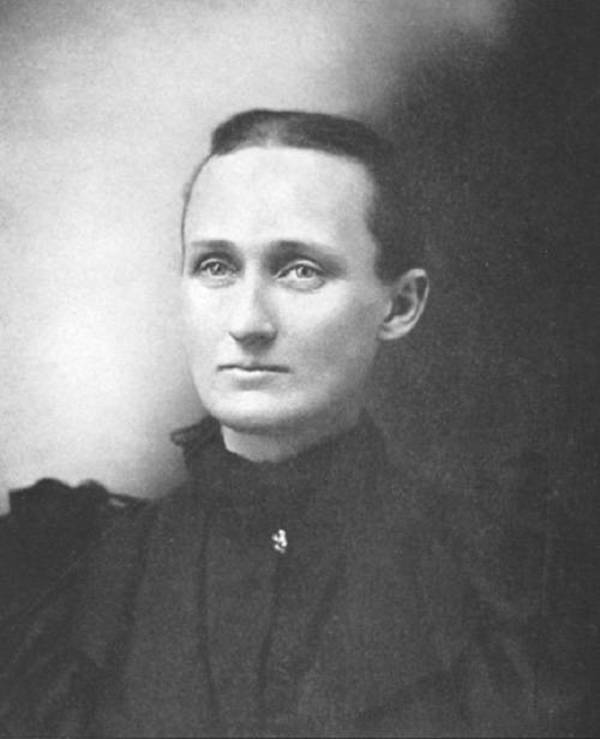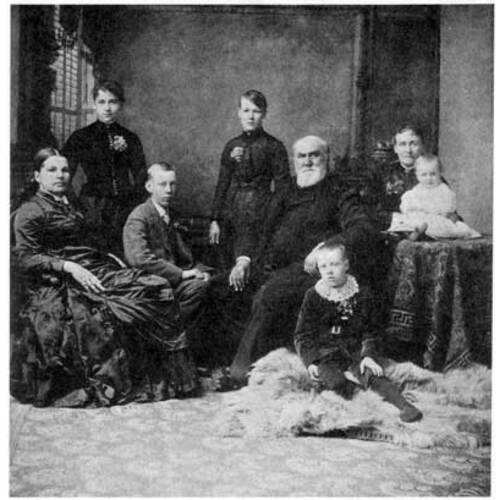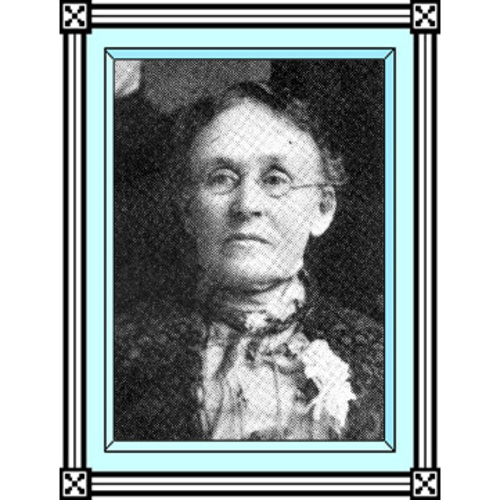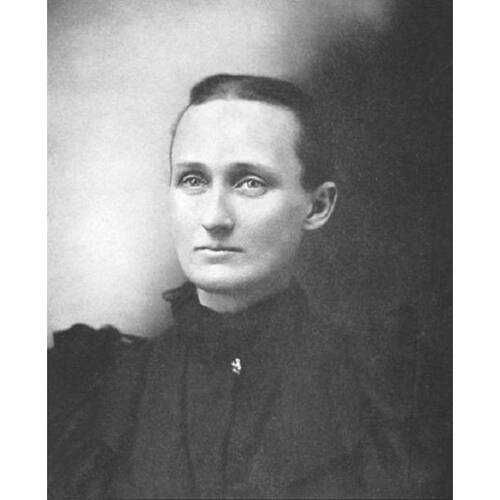
Source: Link
WHITEHEAD, CHARLOTTE (Ross), physician; b. 15 July 1843 in Darlington, England, daughter of Joseph Whitehead and Isabella Gibbings; m. 27 Aug. 1861 David Ross, and they had eight children; d. 21 Feb. 1916 in Winnipeg.
Shortly after Charlotte Whitehead’s birth her family moved to Scotland, and then, in 1848, they immigrated to Huron County, Upper Canada, where they lived in and near what became the village of Clinton. Charlotte attended school in the village, but was sent to the academy of the Sœurs du Sacré-Cœur at Sault-au-Récollet (Montreal North) to finish her education. Her father, a railway contractor and later an mp, had in his employ a young Scotsman, David Ross, whom Charlotte married in Clinton a few months after graduating from the academy.
The couple moved to Montreal, where, in addition to bearing three children in fairly rapid succession, Charlotte helped care for an invalid sister, an occupation which greatly stimulated her interest in medicine. With the encouragement of the family physician, William Hales Hingston*, and that of her husband, Charlotte enrolled in the Woman’s Medical College at Philadelphia in 1870, no Canadian medical school at the time being open to women. During her first year of studies, the children stayed with David’s family in Montreal. Charlotte would return home each summer. After suffering a miscarriage and losing her first year of study, she decided to take her two younger daughters with her when she returned to college in 1871. She did not attend the session of 1872–73 because of a difficult pregnancy; her fourth daughter, Edith Caroline Cleveland, was born in March 1873. Her first son, Hales Hingston, arrived in 1875, three months after her graduation. Although she did not register with the College of Physicians and Surgeons of the Province of Quebec after completing her degree, Charlotte began to treat patients in 1876, thereby becoming the first woman doctor in Montreal.
In 1881 Charlotte and the children joined David in the frontier settlement of Whitemouth, Man., where he operated a sawmill and where, for a time, she was the only white woman. The night after her arrival she was called on to treat her first patient and thus began a practice which was destined to be largely composed of men, an unusual situation for a woman doctor at that time. As the only physician within a radius of 100 miles, she was much in demand by native people as well as by settlers, lumbermen, and railway workers. After assisting at a birth she would often scrub the cabin floor and do the washing, the cooking, and the baking to help the mother and family. Her daughters looked after the Ross home in her absence, although she always did the baking, which she enjoyed, as she did embroidery, knitting, and music, especially the piano. Another of her hobbies was growing roses, something thought to be impossible in the climate of that part of Manitoba.
Charlotte was never licensed by the College of Physicians and Surgeons of Manitoba. Although a private member’s bill was introduced in the Legislative Assembly in 1888 to authorize her to practise medicine, it was opposed by William Fisher Luxton*, a member of the assembly and editor of the Manitoba Daily Free Press. Luxton did not object to women doctors, but he thought they should treat only women and children. He disapproved, however, of unlicensed medical practitioners and, grouping Charlotte together with midwives who had earlier petitioned the legislature, felt that the matter should be decided by the College of Physicians and Surgeons. The bill was withdrawn before second reading. Undeterred, Charlotte continued on her busy rounds by horse, sleigh, canoe, and train, not defiantly, for she was no social or political activist, but simply because there was a need. A member of the Manitoba Medical Association from its foundation in 1908, she made every effort to attend workshops and meetings in order to keep abreast of changes in her profession. Despite her busy career, she bore three more children, but lost one of them to diphtheria.
The Ross family, devout Presbyterians, donated land and material to build a school-cum-church for the district. There Charlotte taught Sunday school and welcomed visiting preachers of all major denominations, including Roman Catholic missionary Albert Lacombe, who became her friend and whom she treated for pleurisy in her home during the early 1880s.
When David died in 1912 Charlotte, suffering from rheumatism, moved to Winnipeg. She died there in 1916 and was buried from Knox Presbyterian Church, with floral tributes from across Canada covering her casket.
Man., Legislative Library (Winnipeg), Biog. scrapbooks. Univ. of Man., Faculty of Medicine Arch. (Winnipeg), Biogs., 12.1/124-022. Airdrie Cameron, “Pioneer woman physician,” Winnipeg Free Press, 5 June 1971, New Leisure: 24. Patricia Forster, “Epic of Manitoba’s first woman doctor, worshipped by men whose lives she had saved, Dr Charlotte Ross ministered to sick of construction camps and settlement at Whitemouth,” Winnipeg Tribune, 7 April 1934, Magazine: 3. Barbara and Michael Angel, Charlotte Whitehead Ross (Winnipeg, 1982). Fred Edge, The iron rose; the extraordinary life of Charlotte Ross, m.d. (Winnipeg, 1992). Carlotta Hacker, The indomitable lady doctors (Toronto, 1974). Ross Mitchell, Medicine in Manitoba; the story of its beginnings ([Winnipeg, 1955?]). H. P. Smith, “Dr Charlotte W. Ross; Manitoba’s pioneer woman doctor,” Manitoba Pageant (Winnipeg), 21 (1975–76), no.1: 9–13. Trails to rails to highways: a history of the rural municipality of Whitemouth, ed. Bob Porth and Craig MacKenzie (Whitemouth, Man., 1979).
Cite This Article
Vera K. Fast, “WHITEHEAD, CHARLOTTE (Ross),” in Dictionary of Canadian Biography, vol. 14, University of Toronto/Université Laval, 2003–, accessed December 20, 2024, https://www.biographi.ca/en/bio/whitehead_charlotte_14E.html.
The citation above shows the format for footnotes and endnotes according to the Chicago manual of style (16th edition). Information to be used in other citation formats:
| Permalink: | https://www.biographi.ca/en/bio/whitehead_charlotte_14E.html |
| Author of Article: | Vera K. Fast |
| Title of Article: | WHITEHEAD, CHARLOTTE (Ross) |
| Publication Name: | Dictionary of Canadian Biography, vol. 14 |
| Publisher: | University of Toronto/Université Laval |
| Year of publication: | 1998 |
| Year of revision: | 1998 |
| Access Date: | December 20, 2024 |





